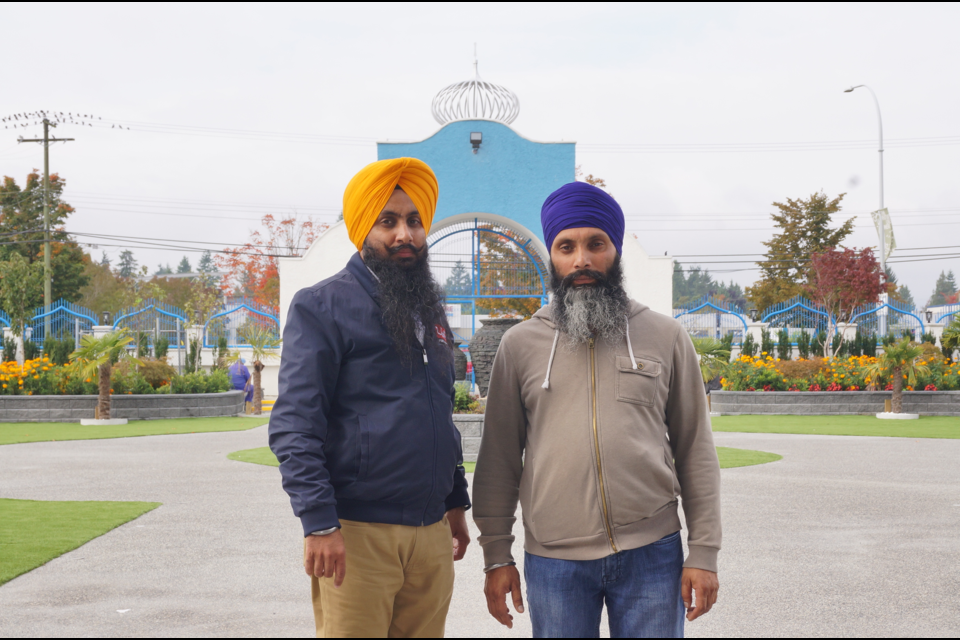Sikh community leaders are meeting this week to chart a path forward for better understanding the root of Canadian intelligence efforts to combat foreign interference by the Indian government, following Monday’s revelation by Prime Minister Justin Trudeau concerning the June 18 murder of temple leader Hardeep Singh Nijjar.
Trudeau told the House of Commons that there is intelligence that Nijjar — an advocate, in Canada, of an independent Khalistan state but also an alleged terrorist, in India — may have been murdered at the behest of agents of the Indian government. No proof was provided to concretely link the allegation and Nijjar’s murderers remain at large.
Moninder Singh, spokesperson for the British Columbia Gurdwaras Council, said for many Sikhs, Trudeau’s apparent acceptance of such a possibility was more surprising than were it to be proven.
“There is some feeling of relief and being validated as we’ve been raising this issue for 40 years. So, there is some validation this is not all for not,” said Singh.
However, Singh said he and other local gurdwara (temple) leaders have questions about how Canadian intelligence on threats to the lives of Nijjar and other Sikh activists has been accounted for.
Nijjar’s lawyer told the Vancouver Sun Nijjar, prior to his shooting death in Surrey, had received briefings from the Canadian Security Intelligence Service that his life may be under threat due to his political activism.
Furthermore, a news report Tuesday from The Bureau, said Singh, raises questions as to how dedicated, or not, the Canadian government was in mitigating Indian government operations against pro-Khalistan activists. The Bureau reported efforts to stop those operations were underway in 2017 but halted before Trudeau visited India in 2018, and subsequently never re-engaged.
“Is there a tie between how openly these people (agents of India) are allowed to operate and infiltrate further and set up their network here that it was so easy for them to take one of our Sikh leaders in this country out on a regular friggin Sunday, on Father’s Day?” said Singh, speaking to Glacier Media.
“We are asking that question internally now” and “in the next couple of days we’ll start knocking on that one,” he said.
B.C. Premier David Eby issued a statement Monday calling on the federal government to coordinate information sharing on foreign government threats against Canadians.
“I call, yet again, on the federal government to share all relevant information related to any known ongoing foreign interference and transnational organized crime threats with our provincial authorities and our government, so we may act in co-ordination and protect those at risk,” stated Eby.
Singh’s group produced a report in March 2023 outlining its allegations against the Indian government, which is controlled by Hindu nationalists of the Bharatiya Janata Party, led by Prime Minister of India Narendra Modi. India opposes any split of the Punjab province, as advocated by some Sikhs, who report repression of their religious beliefs in India.
Singh says since many Canadian immigrants from Punjab maintain business and family ties back in India they remain dedicated to the proposed Sikh state of Khalistan. But this has led to the Indian government countering their beliefs in Canada.
The report claims India influences Canadian academia, media and politicians with a ground game of influence and intimidation. And temples, being a prominent gathering spot for the Sikh community in B.C., are highly vulnerable, said Singh.
He said people acting on behalf of India covertly enter temple politics and sway individuals away from Khalistan beliefs.
“Eventually, they become part of the community, they enter into the gurdwara spaces to help or take control; they’re really being operated out of India. This was really more prevalent in the '80s and '90s,” said Singh.
Now, India also “weaponizes” visitor visa approvals by monitoring pro-Khalistan activists and not allowing them to return if they step out of line in Canada. Many are effectively silenced based on these tactics, said Singh.
Singh also describes how the Sikh community can be overtaken with conspiratorial thinking; many in the community believe, without evidence, that the Indian government was behind the plot to bomb Air India Flight 182 in 1985.
“The community is forced to question everything that happens,” said Singh.
Singh said the Sikh community, on the whole, is asking for a public inquiry into foreign interference and one that looks into India, not just China.
Because India is a democracy, Singh acknowledged the Canadian public at large may have a more difficult time conceptualizing India’s alleged tactics, as compared to an authoritarian state such as China or Russia.
“People are more reluctant to see India as an actor that can do this,” but, “I think they’ve played the part long enough,” he said.
Meanwhile, India has denounced Trudeau’s speech, and a diplomatic crisis has ensued. On Tuesday, it expelled a senior Canadian diplomat, accusing the High Commissioner of Canada of foreign interference in Indian affairs, or “anti-India activities,” according to a statement issued by the Ministry of External Affairs. This, after Minister of Foreign Affairs Mélanie Joly expelled a top Indian diplomat from Canada.



